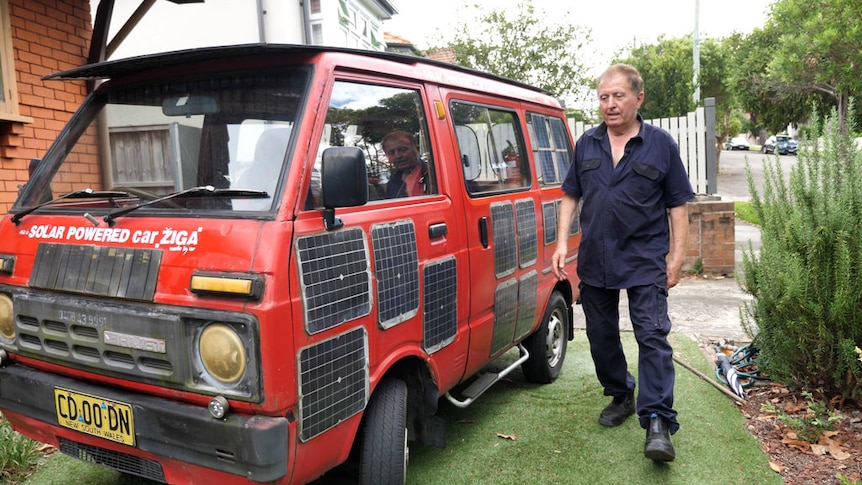That’s honestly pretty dope. For anyone that didn’t watch, he’s charging off his home’s roof top. The panels on the car probably do very little.
I want a close up on those batteries! That looks like a crazy amount of work. What happens as they wear out? How does he test for that? Given that they’re recycled, you never know how many charge cycles they have. I assume the thing is modular?
Sure wish laptops still used 18650s. I haven’t bought a new battery in ages, all recycled from old laptops and power tools.
It actually sounds like the van’s panels (I’m guessing especially the large roof panel) can provide non-trivial power:
“Even if I’m stuck somewhere we just have to wait a couple of hours and it’ll self charge and bring me home.” (emphasis added)
No doubt the huge array of panels on his roof can give it a lot more juice though!
That’s punk af and I love it, let me bring this to the wonderful folks at solarpunk.net
Whenever I see stuff like this I wonder how on earth they managed to get someone to sign off on the engineering certificate. Then again it does say he’s worked in engineering of some varieties so maybe he can self certify.
If he didn’t mess with the frame, brakes, steering or suspension it probably didn’t need certification. They don’t care about cars breaking down, just that they should be controllable and able to stop.
Changing to a motor which wasn’t originally offered in that model of vehicle definitely needs certification, at least in NSW (other states might be more lenient).
This is the best summary I could come up with:
Heads turn as a high-pitched whirring sound zooms up the leafy main street of Haberfield in Sydney’s inner west.
Ten years ago he took out the Daihatsu Hijet’s engine and replaced it with ride-on lawnmower motors, batteries from laptops, and plugged it into his rooftop solar panels.
He was studying electronics at Strathfield when his professor asked him to help out with the solar racing car team at Meadowbank.
He got it second hand from an ad in The Trading Post newspaper for $100, then began turning it into an electric vehicle that would be powered by his rooftop solar.
He added 8,000 batteries from power tools and laptops, which hook up to a cable that runs down the side of his house from the panels when he charges the van out the front of his home.
At 75 years of age, the DIY enthusiast is showing no signs of slowing down — and neither does his whirring, red van.
The original article contains 625 words, the summary contains 160 words. Saved 74%. I’m a bot and I’m open source!





